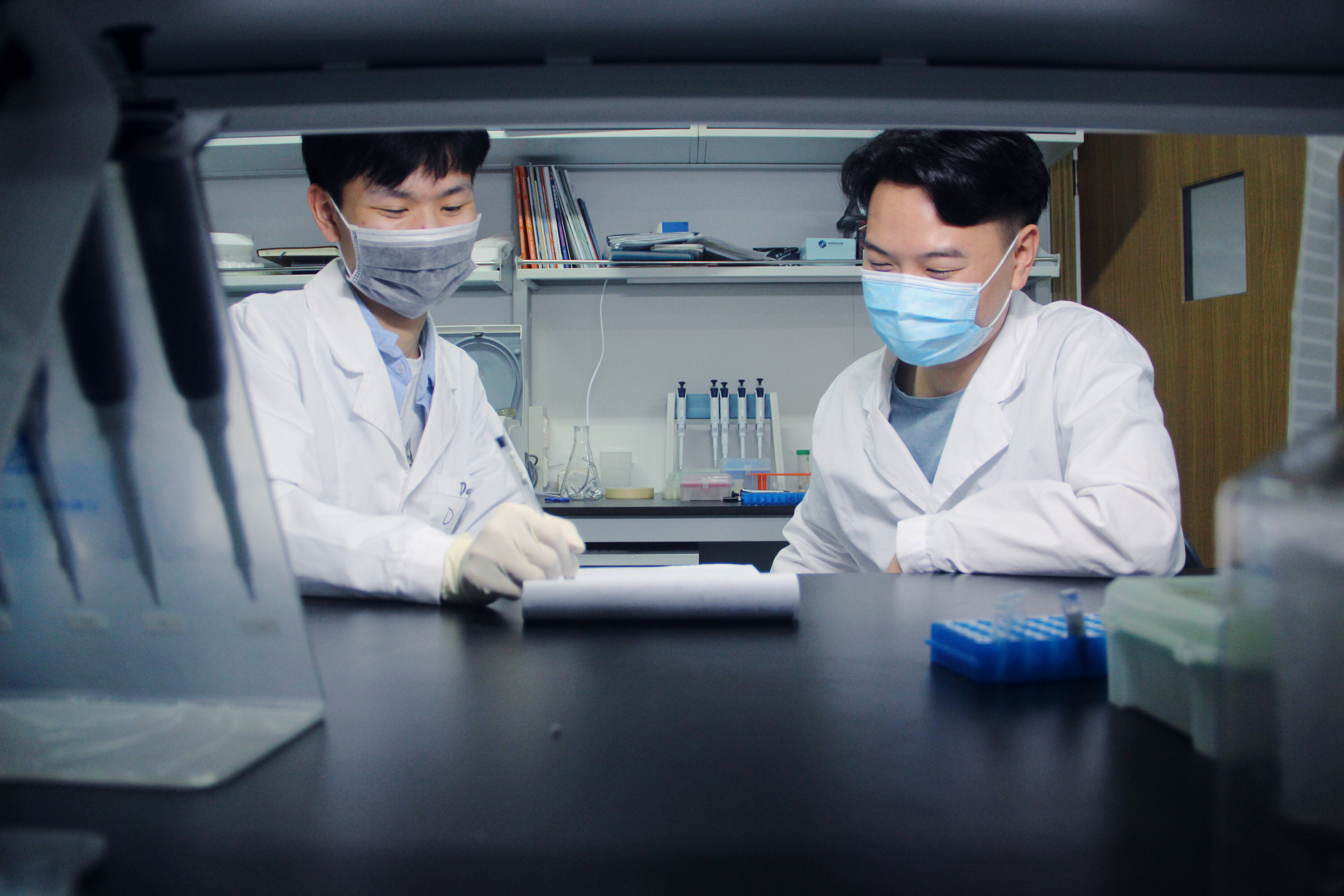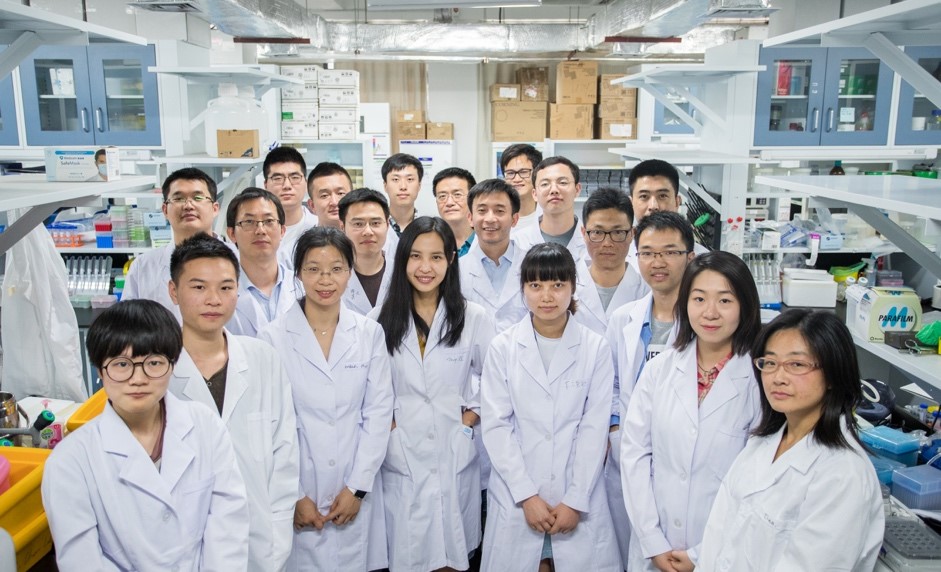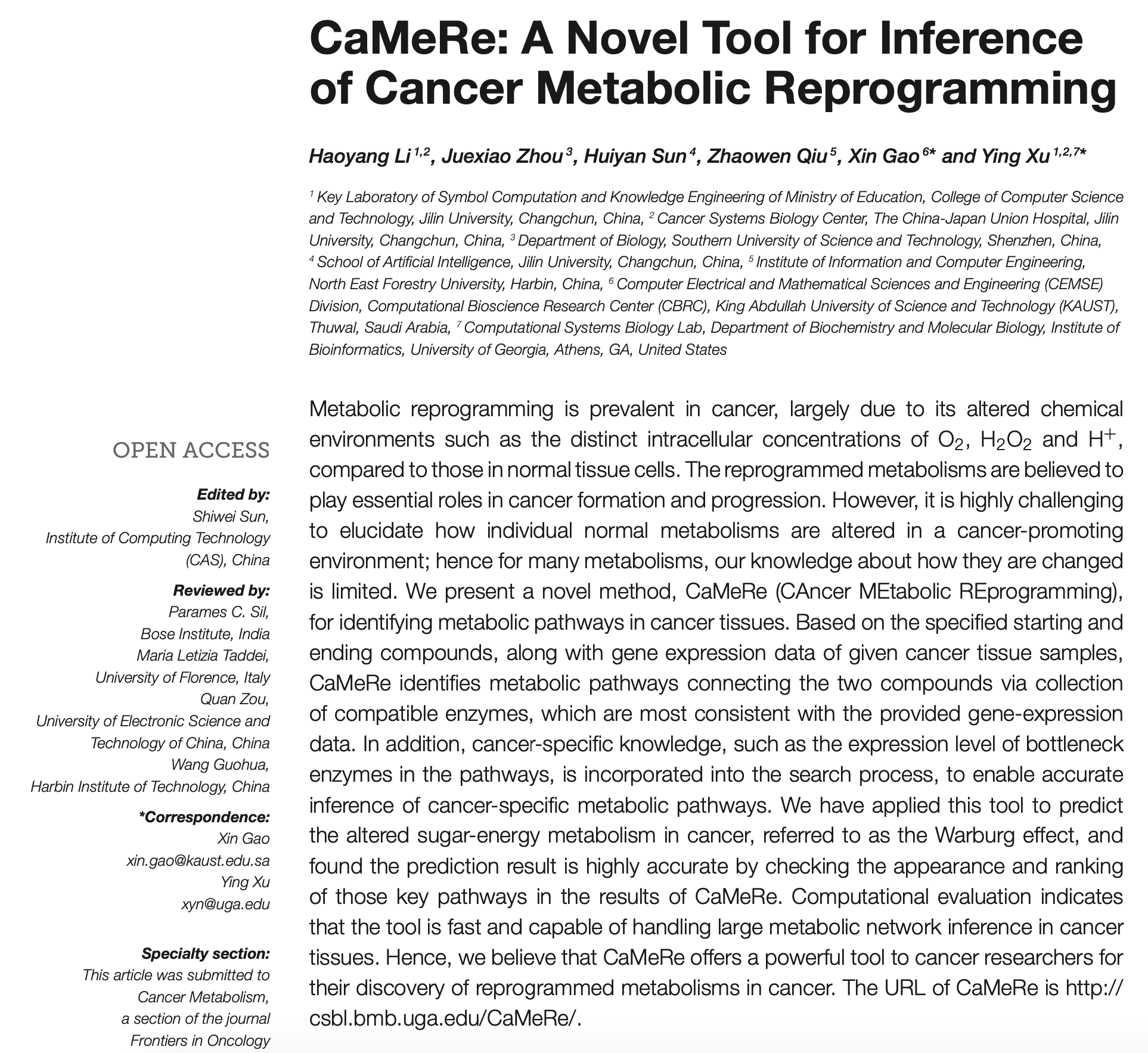Undergraduate research is at the core of SUSTech. It represents the opportunity for every student to innovate in scientific research, to make a difference for the world. Scientific inquiry is a fundamental part of all our undergraduate programs, with research outcomes representing the capstone experience of our undergraduate degrees. Interdisciplinary research can change the world, clarifying career directions, and develop skills that can be applied to numerous fields. We spoke to several students to see how we had helped them achieve their dreams.
Juexiao ZHOU has long dreamed of being a scientist. Dreams were the very thing that puzzled and motivated him. From his middle school days, he was intrigued by the concept of the “dreamscape,” lucid dreaming,” and the ability to control one’s dreams.
Even as a middle schooler, his desire for answers saw him scouring all corners of the internet for answers, to no avail. The only studies he could find relied on anecdotal evidence, limiting their scientific value.
His thirst for understanding saw him consume all sorts of literature, including The Interpretation of Dreams by Sigmund Freud and the movie Inception. Both pieces stimulated his curiosity about how the brain works. As a middle school and high school student, he wanted to understand the principles behind human emotions, memories, and dreams. All these factors became his original mission to become a brain scientist.

Juexiao ZHOU chose to come to SUSTech because of this desire to explore the unexplored. Our potential for students to innovate in a wide array of scientific endeavors inspired him to come all the way south so that he could conduct research at the earliest possible time.
Once Juexiao ZHOU arrived at SUSTech, he started to learn more about the scientific method. He started to apply the evidence he had already learned in his studies in a more scientific style. He invested in a portable electroencephalogram (EEG) machine (a device used to create a picture of the electrical activity of the brain). Juexiao ZHOU intended to gain an overall view of the electrical activity of his brain relative to his dreams.

Unfortunately, Juexiao ZHOU was unable to achieve his immediate goal. However, it was this failure that motivated him. After spending time in several different laboratories in the Department of Biology, he committed himself to Chair Professor Wei CHEN as his academic tutor. He decided to study bioinformatics, the combination of biology and computer science, as he felt that the integration of these two fields would help him decode the brain.
When Juexiao ZHOU first arrived at SUSTech, he had a plan for the next four years. He had designated a series of small goals to make sure that he could work through everything he wanted to achieve. This motivation and goal-setting approach resulted in him achieving the majority of things he wanted to, giving him a vital sense of accomplishment.
At the beginning of his time in the laboratory, he started to learn a variety of omic analysis methods, including RNA-Seq and Hi-C. As he progressed in these fundamental skills, he realized that it would be easier for his studies if he developed his computer programming proficiency. He picked up four computer languages so he could develop artificial intelligence models to analyze his biological data. Juexiao ZHOU dedicated a significant amount of free time in the laboratory, even on weekends and late into the evening. While he was not given many responsibilities as a freshmen student, he spent his time following older students to pick up skills rapidly.

As a sophomore student, Juexiao ZHOU not only had many classes but took on more responsibilities in the laboratory. His dedicated mindset is derived from his upbringing in Changsha, the capital of Hunan Province. His motto is, “Work hard, play hard, and persevere,” which generally describes the consistency that can be achieved during times of high workload and trouble.
His commitment to his research goals was unrelenting, and he sought out his tutors and the senior students for advice whenever he could. This friendly relationship that he developed with everyone in the laboratory helped him prepare for future years, as he could work with everyone on different projects.
Juexiao ZHOU’s junior year was almost certainly the highlight of his time as a researcher at SUSTech. He was placed in charge of several research projects, including those funded by the National Natural Science Foundation of China (NSFC). He was aware that the chance to publish a paper in the field of biology, let alone bioinformatics, as an undergraduate student, was very low. These projects tend to have long lifecycles with many participants, so being published as an undergraduate is an enormous honor. However, he stuck to the spirits of SUSTech and Changsha and persevered.

His first paper as a co-first author was published in the high-impact academic journal, Frontiers of Oncology (IF = 4.137), under the title, “CaMeRe: A Novel Tool for Inference of Cancer Metabolic Reprogramming.” The experiment behind that paper took six months to complete, and the review took an additional three months. He worked with colleagues at Jilin University, North East Forestry University, University of Georgia, and King Abdullah University of Science and Technology (KAUST).
He was also involved in a significant paper published in Molecular Systems Biology (IF = 9.580), titled “Pan-tissue analysis of allelic alternative polyadenylation suggests widespread functional regulation.” This paper was completed with partners at the Freie Universität Berlin, the University of California San Francisco (UCSF), and the National University of Singapore (NUS).
It was his research efforts that got him invited to conferences around the world. It was one of these conferences where Juexiao ZHOU eventually met his new mentor, KAUST Associate Professor Xin GAO (Computer Science). Xin GAO is also the Acting Associate Director of the Computational Bioscience Research Center. It was meeting Xin GAO that cemented the move to KAUST instead of going to a more established university in North America or Europe. After three years at SUSTech, Juexiao ZHOU had finished all the credits needed for his degree, so his move to KAUST came at an earlier juncture than planned.

Juexiao ZHOU noted that he had focused entirely on research while at KAUST, and currently has four papers in various stages of review for publication in journals and conferences. His time at KAUST has seen him focus more on bioinformatic approaches to the novel coronavirus (COVID-19) and medical imaging. The research intensity at KAUST is exceptionally high. It is the strong foundation he laid at SUSTech that has helped him fall in love with the high-intensity research environment. In the coming months, he will be publishing more papers for top journals and international conferences
The research experience he gained at SUSTech in bioinformatics has helped him transition into a Ph.D. in computer science. This interdisciplinary approach will help him work towards his original goal of studying brain science. He aims to move into brain science at the post-doctoral level, once he has completed his Ph.D.
Juexiao ZHOU believes that his multicultural and multidisciplinary education, between SUSTech and KAUST, will prepare him for his future research. He hopes to study the principles of the human brain from the perspectives of emotion, memory, and dreams, to focus on commercial applications.

As a young man who has taken a path not so well-trodden, Juexiao ZHOU enjoys his life at KAUST and in Saudi Arabia. He believes that there are plenty of opportunities for researchers to explore a new scientific and cultural environment should they choose to go somewhere different.
Message for future undergraduate researchers:
It’s important to know what you want to do. I think you first need to organize your goals, so you have a strong motivation to achieve them.
Don’t be afraid to try. As a newcomer to any scientific field, you will have plenty of opportunities for trial and error, so follow the SUSTech spirit to achieve more.
Proofread ByYingying XIA
Photo BySupplied, Yan Qiu